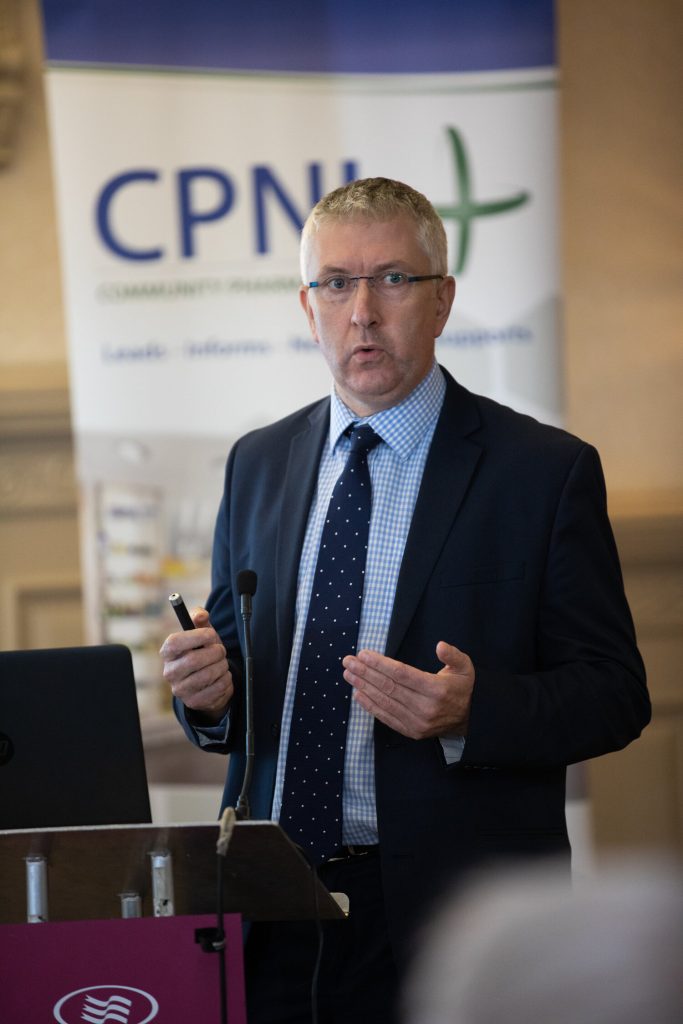A new report by one of the UK’s top 4
accounting firms has concluded that the impact of community pharmacy in
Northern Ireland over the last 10 years and through COVID has been
transformative in supporting patients and the health service but increased investment
in the sector is required to enable community pharmacy to continue its
important contribution to primary care.
The new report by KPMG highlights the
resilience of the sector in meeting a steep rise in demand during Covid-19
through the provision of enhanced frontline services to communities during that
time.
The report also shows a minimum 16%
increase in the basic annual cost of providing commissioned services from
£126million in 2011/12 to £146million in 2020/21*, as well as an increase in
workload with dispensing activity and other pharmacy services up by 49%.
The report comes 16 months after
community pharmacists had unanimously voted to take industrial action following
years of funding shortfalls by the Department of Health. This planned action
was paused when the pandemic struck in March 2020 and pharmacies took the
decision to remain open and provide an uninterrupted service to patients.
In response to the latest report,
Community Pharmacy NI is calling on the Department of Health to consider the
report’s findings as attention turns to transformation of the health service,
and within that, the changes needed in primary care services.
Chief Executive of Community Pharmacy
NI, Gerard Greene said:
“This report shows the reality of the community pharmacy response during COVID and the costings for community pharmacy services in Northern Ireland. Since 2011, we have seen rising costs and an overall increase in service provision so on-going and enhanced investment in the sector is required.
“With continued pressures on the health service, community pharmacies have, and will continue to see, an increased reliance on the service by patients with an associated increase in costs, dispensing and services over the next ten years. Funding therefore must match this rise in demand to ensure the correct provision of care is afforded to patients.
“In early 2020, the community pharmacy network was in crisis. Our pharmacists had reached breaking point and voted in favour of industrial action. When the pandemic arrived, we put aside these long-standing issues to support the patients reliant on our services at a time when many services closed.
“The Health Minister recognised the pressure and allocated the funds required to meet pandemic demand in July 2020. However, this funding only addressed issues for one year and meant that community pharmacy contractors could remain open to support patients at a time of national crisis. This level of funding needs to be recurrent, matched to the cost of providing the service and a long-term solution is now needed.
“As we move out of the pandemic, and talk turns to transformation, it is imperative that community pharmacy is part of the discussion around planning for primary care. We have proven time and time again that we are a vital component part of the health service. Investment and forward planning are now required for our services to be elevated so we can continue to support our communities.”
Vice Chair of Community Pharmacy NI,
Peter Rice said:
“Working on the ground in my pharmacy, I see daily the impact of the increasing demand for services. This has been going on for years and there is a need for sustained long-term investment in the service.
“We have never been busier, with patients seeking advice and needing dispensed medicines and other services on a wider scale than we have seen before. We are now the first point of contact for many patients with health queries, we want to support patients and indeed do more, but we need the investment aligned to our costs and we need stability to plan for an increased role and offering going forward.
“The past fifteen months have brought an insurmountable amount of pressure, but pre-Covid we were in crisis. We had been pushed to our limit and were calling out for the Department to intervene and provide desperately needed funding. The sense of urgency has not left us. The pandemic meant we were focused on supporting patients through the worst health emergency in a generation, but our need for proper funding and planning is still apparent.
“The pandemic highlighted the agility of our network, with pharmacies adapting their premises and working practices overnight in many cases. Despite the unrelenting pressures the network was facing we stood up during the health emergency, launching new services to respond to the pandemic, ensuring all patients had the correct medicines and, most recently, administering the COVID vaccine with over 70,000 people having accessed their vaccine within their community pharmacy.
“Community pharmacy is the heartbeat of our neighbourhoods, with many of our patients coming to us when they needed help most. Through sustained funding and forward-thinking planning, we have the opportunity to continue to offer first class primary care to our communities. We implore the Department to look at this insightful report, recognise the value of community pharmacy, and allocate the much-needed investment to allow community pharmacy teams to play their part in the transformation of a stretched health service, ensuring patients across Northern Ireland can continue to access both the existing and enhanced healthcare services they need and deserve.”
Notes
to Editor *The baseline for
HSC commissioned services, factors in the increased workload, but excludes HSC
non-recorded payroll costs (£10m).



